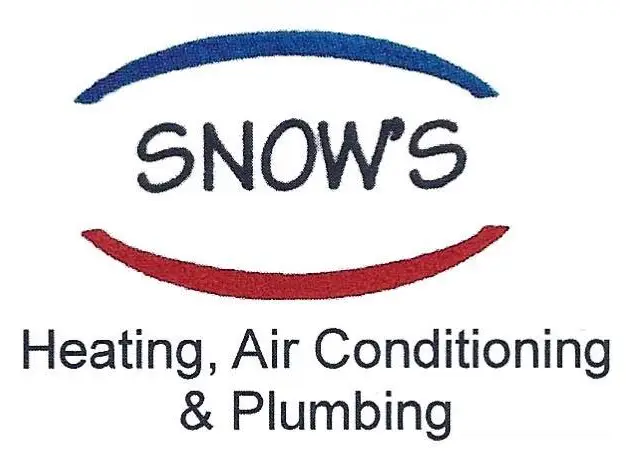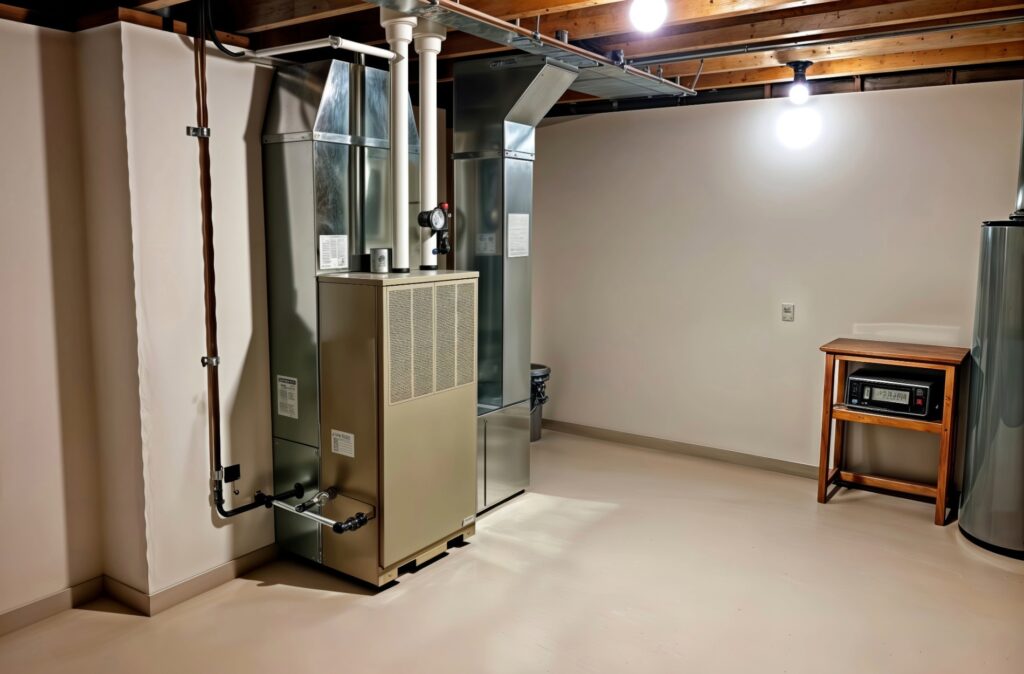If your heater keeps turning off before your home feels warm, you’re probably dealing with a problem called short cycling. This happens when a heating system starts up and shuts down too quickly, never completing a full heating cycle. It can leave you cold, frustrated, and unsure whether your system is working at all. Over time, it can also cause wear and tear on equipment, leading to more repairs and higher energy costs.
For homeowners in Orangeville, short cycling tends to show up during the colder months when your heating system is needed most. If your rooms feel unevenly heated or your unit seems to be constantly stopping and starting, there’s probably an underlying issue. Exploring what causes this can help you better understand the warning signs and when it’s time to bring in our professionals for heating repair in Orangeville.
Thermostat Problems That Trigger Short Cycling
The thermostat acts as the brain of your HVAC system. If it’s sending the wrong signals, your heater may keep cycling on and off before your space is fully heated. A faulty thermostat can either misread your indoor temperature or struggle to communicate with the system.
Here are some common thermostat-related issues that lead to short cycling:
– The thermostat is installed too close to heat sources like lamps, windows, or vents, causing it to shut off the system too early
– Wiring problems or loose connections disrupt how the thermostat controls the heater
– Older or damaged models may show incorrect readings, making your heater behave unpredictably
To rule out thermostat issues, check its placement. Make sure it’s located on an interior wall away from windows or direct sunlight. If it seems to be acting up, try replacing the batteries and see if it resets correctly. Inaccurate readings can sometimes be blamed on aging components inside the thermostat. If adjustments don’t fix the problem, it’s time to have our technicians take a closer look.
Dirty Air Filters Can Lead to Overheating
When your heater’s air filter is clogged with dust, pet hair, or debris, air can’t flow through the system like it should. Without proper airflow, the unit begins to overheat. This triggers safety shutoffs, which quickly turn the system off to prevent damage. Then it starts a new cycle only to stop again. Over time, this constant starting and stopping can shorten the lifespan of your heater.
Replacing a clogged filter is one of the easiest ways to improve system performance, but it’s easy to forget. Many people in Orangeville don’t check their filters until something goes wrong. If you can’t remember the last time you changed yours, it may be overdue.
Watch for signs that your air filter needs attention:
– Heating system turns off unexpectedly
– Increased dust buildup inside your home
– Weak airflow coming from vents
– Rising energy bills without extra usage
Try to check your air filter every one to three months, especially during heavy use. If it looks gray or dusty, swap it out. If you’re not sure what filter size or type to use, our team can help during a seasonal checkup. Clean airflow helps your system run as it should, and it may solve short cycling before it becomes a bigger problem.
Blocked Vents Cause Heat Buildup and Short Cycles
When vents are closed, blocked, or covered, it makes it difficult for your HVAC system to push out heated air properly. That restriction increases pressure inside the ductwork and can cause parts of the heater to overheat. The system ends up shutting down early in the cycle to protect itself, leading to the same frustrating stop-and-start pattern known as short cycling.
Most homeowners in Orangeville don’t realize how easily this can happen. Vents might be blocked by rugs, furniture, curtains, or even dust buildup over the years. If certain rooms in your home stay colder than others, or if your heater seems to turn off too soon, it’s worth inspecting every supply and return vent.
Here are a few steps to help prevent airflow-related short cycling:
– Make sure all vents and returns are fully open and uncovered
– Keep at least a few inches of space around vents so air can circulate freely
– Move large furniture off of floor grates or wall registers
– Vacuum vent openings to remove dust buildup that restricts airflow
Even the placement of big couches or long curtains can alter how heat moves through your space. Think of your system like a set of lungs. It needs open airways to work efficiently. If the air gets stuck halfway, it puts pressure on the unit, which eventually forces it to shut down before completing a full heating cycle.
Why Incorrect HVAC System Size Matters
A lot of homes in Orangeville were built before modern HVAC sizing standards became a common practice. If your heating system was installed without a proper load calculation, it may be either too big or too small for your home. Both lead to problems, especially short cycling.
An oversized system heats your home too quickly, triggering the thermostat to shut it off prematurely. Then cold areas cool down again just as fast, prompting another heating cycle. This back-and-forth tires out the heater and doesn’t allow it to distribute heat evenly. A unit that’s too small, on the other hand, can run constantly yet still leave your home feeling chilly.
Here’s how to know if your HVAC sizing could be to blame:
– Heater frequently short cycles or operates in quick bursts
– Some rooms heat up fast, others remain cold
– Unit makes loud or frequent startup noises
– Rising energy bills with no added usage
Getting the size right typically requires a professional load calculation that considers window sizes, insulation, square footage, and ceiling height. If short cycling has been a constant problem since installation, the system may not match your home’s design or heating needs.
When Electrical Faults Disrupt Your System
Electrical parts inside your heating system play a major role in how it starts and stops. If there’s a problem with safety switches, control boards, or sensors, it can send the wrong signals or shut down the heater too soon. Short cycling isn’t always caused by airflow or placement issues. Sometimes, it’s a failed part or faulty wiring you can’t see.
Faulty or worn-out electrical components can:
– Misread system temperatures and trip early
– Fail to trigger the heating cycle properly
– Cause inconsistent starts or occasional tripping of the circuit breaker
– Affect both gas and electric-powered systems
These problems typically don’t show obvious symptoms beyond the system starting and stopping too frequently. You might hear a relay clicking rapidly or notice the fan blowing without heat. While these small signals are easy to miss, they’re signs that your system has a deeper control or wiring issue. Electrical issues should never be ignored, since they can affect multiple parts of the HVAC unit and lead to bigger operation failures.
If your HVAC system has already been cleaned and inspected for airflow and sizing, electrical faults are a logical next step to investigate. These types of problems need expert testing for safety and accuracy, which is why our professionals handle wiring, relays, and sensors during service visits.
Keeping Your Orangeville Home Warm Without Interruption
Short cycling isn’t just annoying. It’s a sign that something isn’t right inside your heating system. Whether it’s a blocked vent, old thermostat, or wiring issue, each cause puts extra stress on your system and makes your home less comfortable. Over time, this can wear out internal parts and lead to unexpected breakdowns, especially when temperatures drop in Orangeville.
A system that runs the way it should delivers steady, even heat across each room without stopping mid-cycle. That level of comfort depends on regular upkeep, accurate system sizing, and safe functioning electrical components. If your heater has struggled to complete a full cycle lately or if your home just doesn’t feel evenly heated, it’s time to get a full system check by our technicians. Identifying and fixing the problem early helps your equipment last longer and keeps your home feeling comfortable during the cold months.
Snow’s Heating & Air Conditioning understands how frustrating heater issues can be during cold days in Orangeville. If you notice your system stopping before it warms your home consistently, consider addressing the problem with professional heating repair in Orangeville. You deserve reliable heat, steady performance, and a home that stays comfortable through every cycle, and our professionals are ready to help make that a reality. For a quick estimate or to schedule a service visit, please contact us today.


